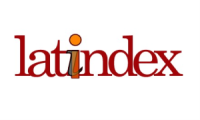An evaluative analysis of particle swarm optimization for reinforcement learning in pendulum task
Abstract
Applying swarm intelligence algorithms to reinforcement learning of neural networks is practical because they do not rely on gradients. Particle swarm optimization (PSO) is a representatives of swarm algorithms. In this paper, the author experimentally evaluates the effectiveness of PSO in the reinforcement learning of multilayer perceptrons (MLPs), using a pendulum control task. Experimental results demonstrated the successful training of an MLP with 8 hidden units, enabling rapid uprighting of the pendulum. Notably, it was found that increasing the population size rather than the number of iterations allowed PSO to discover better solutions. In PSO, increasing the population size promotes global exploration in the early stages, while increasing the number of iterations enhances local exploitation in the later stages. Based on the results of this experiment, it is evident that in this learning task, early-stage global exploration is more important.
Downloads
References
R. C. Eberhart, Y. Shi, and J. Kennedy, Swarm Intelligence, Morgan Kaufmann, 2001.
E. Bonabeau, M. Dorigo, and G. Theraulaz, Swarm Intelligence: From Natural to Artificial Systems, Oxford Academic, 2020.
C.J.C.H. Watkins, and P. Dayan, “Q-learning,” Machine Learning, vol. 8, no. 3, pp. 279-292, 1992.
R.S. Sutton, and A.G. Barto, Reinforcement Learning: An Introduction (2nd ed.), MIT Press, 2018.
J. Kennedy, and R. Eberhart, “Particle swarm optimization,” IEEE Int. Conf. on Neural Networks, vol. iv, pp. 1942-1948, 1995.
P. Riccardo, J. Kennedy, and T. Blackwell, “Particle swarm optimization: an overview,” Swarm Intelligence, vol. 1, pp. 33-57, 2007.
M. Dorigo, and T. Stützle, Ant Colony Optimization, MIT Press, 2004.
M. Dorigo, M. Birattari, and T. Stützle, “Ant colony optimization,” IEEE Computational Intelligence Magazine, vol. 1, no. 4, pp. 28-39, 2006.
D. Karaboga, and B. Basturk, “Artificial bee colony (ABC) optimization algorithm for solving constrained optimization problems,” Advances in Soft Computing: Foundations of Fuzzy Logic and Soft Computing, LNCS, vol. 4529, pp. 789-798, Springer, 2007.
D. Karaboga, B. Gorkemli, C. Ozturk, and N. Karaboga, “A comprehensive survey: artificial bee colony (ABC) algorithm and applications,” Artificial Intelligence Review, vol. 42, pp. 21–57, 2014.
P. K. Sankar, and S. Mitra, “Multilayer perceptron, fuzzy sets, and classification,” IEEE Trans. on Neural Networks, vol. 3, no. 5, pp. 683-697, 1992.
Copyright (c) 2023 ITEGAM-JETIA

This work is licensed under a Creative Commons Attribution 4.0 International License.











